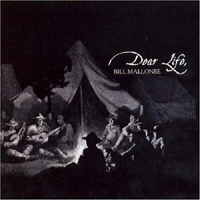Abandoning the indie-pop experimentation of 2003’s Perfumed Letter, Mallonee’s fourth solo album returns to the unabashed rootsiness that cemented his reputation as an integral part of the Athens, Ga., music scene during the late ’80s and well into the ’90s. But a new maturity pervades this stripped-down, deeply personal song cycle—in essence, he’s grown into the cowboy hat you’ll find him sporting in the album’s liner notes. These songs play as a series of fairly direct letters—not to “Life,” per se, but to his family—and in them he seems to grapple with the whole of his biography from childhood (“Ready and Red-Eye”) to the grave (“I Will Miss You Girl”). Mallonee has always been a wrenchingly self-confronting songwriter, but on occasion his honesty has been clogged in overheated Dylanisms. Here he wears his metaphors lightly, but remains blunt enough to sing, “I am not long for this world,” without betraying hints of melodrama.
In places the album is nearly stark enough to recall Bonnie “Prince” Billy, but a better reference point would be the Metaphysical poets of the 17th century. Like them, Mallonee is always trapped—neatly trapped—between faith and doubt, dangling in the guy-wires of a dichotomy and finding grace there. “Coming up empty falling down short / Another disturbing progress report / That you wrote yourself in the drought’s fine dust,” he begins one verse of “Where the Light Does Fall,” but crisply finishes the rhyme: “There’s another standard in which you must trust.” Similarly, “High and Lonesome” moves back and forth between the states being alluded to in its title, and the chorus of “Ready and Red-Eye” declares—over a charging melody—“You’re wasted now, and the whole thing was a lie / But you’re ready and red-eye.” Later, Mallonee wonders if his son is on “drugs or on life,” and the album itself seems suspended between the peacefulness of its opener, “When All This Dust Settles Down,” and the anxious self-doubt of its closer, “Songwriter (Numb).” Mallonee’s honesty makes the affirmations here all the more convincing—and it keeps the simple, mostly acoustic production from feeling too monochromatic.




